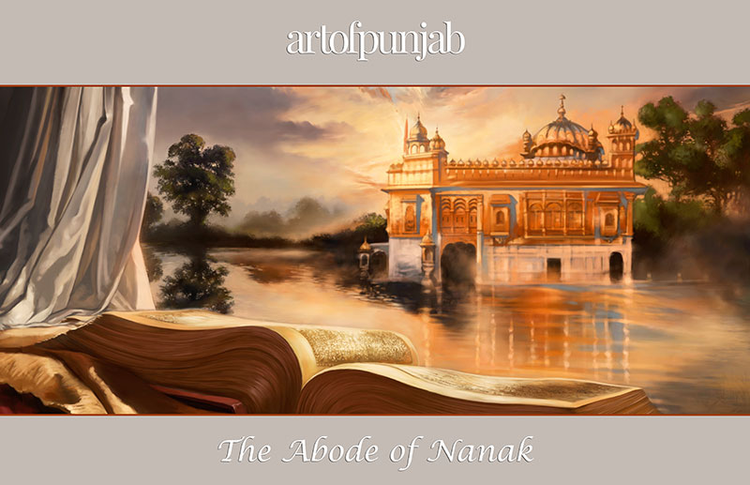-
Sikhism 1469
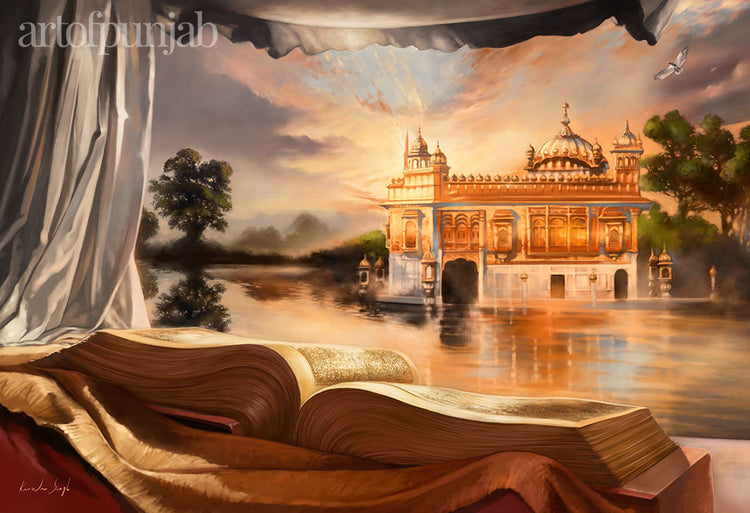
Siri Guru Granth Sahib - The Abode of Nanak
The Siri Guru Granth Sahib is the embodiment of the spiritual revolution which was first ignited by Guru Nanak dev ji and the life breath of eight more Nanaks nurtured and fed this flame. Then in 1699 Guru Gobind Singh ji, the tenth Sikh Guru, transformed that flame into a wildfire of spiritual liberation through the creation of the Khalsa panth.
We look to Siri Guru Granth Sahib as our guide to connect with the One internally, see the One in all and fight inequality and injustice in every sphere of our lives as the Gurus themselves did. The image of Harimandir Sahib (Golden Temple) reflects the other half of the spiritual revolution because it represents the innumerable gurudwaras and abodes of Nanak which we create to enable the sadh sangat to come together, remember Guru Nanak’s message and carry on his revolution.
-
1708
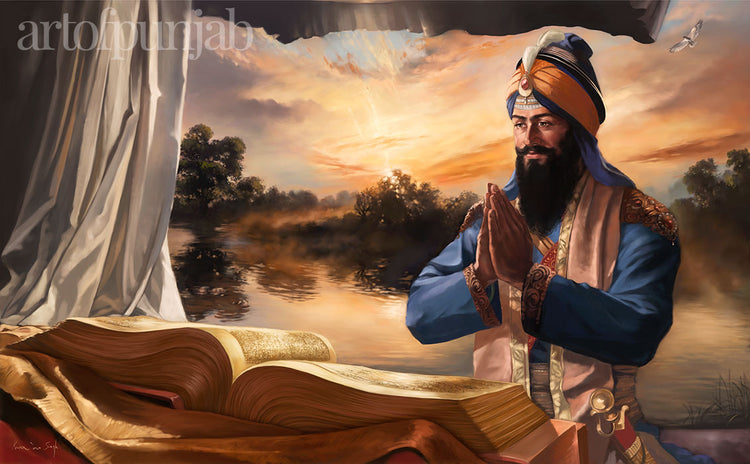
The Eternal Guru
In 1708, Guru Gobind Singh, the tenth Guru of the Sikhs, having consciously witnessed the sacrifice of the lives of all his four sons, handed over the legacy of the Guruship to the Siri Guru Granth Sahib ji, our Eternal Guru. He understood that the age of lineage was over, and so he consciously left no heirs. The unique beauty of this is that the Siri Guru Granth Sahib, our present Guru, can neither be altered nor changed in any way. It is a touchstone for all humanity that exists beyond the limitations of time and space, now and in the future. -
Fifth Guru 1604
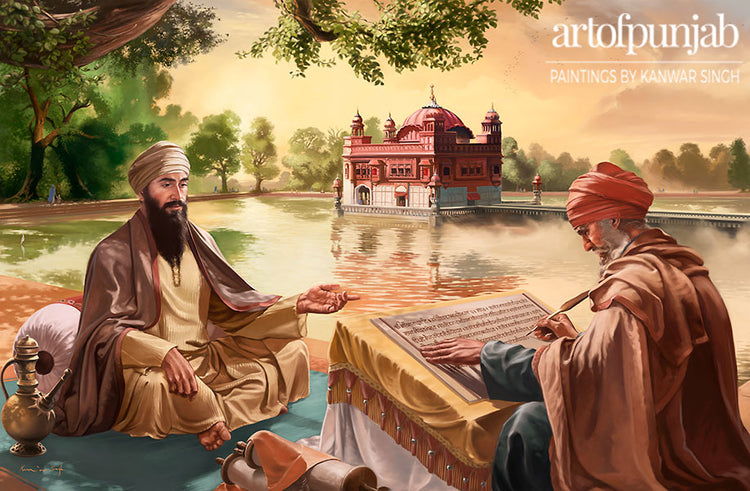
Guru Arjan Dev Ji - Birth of the Adi Granth
Guru Arjan Dev Ji, the fifth in the line of Guru Nanak, began the compilation of the Guru Granth Sahib, which he called the Adi Granth – the “primal knot” which would forever secure the sanctity of the Sikh faith. The Guru sent out a call to all Sikhs far and wide to bring forth the poetry composed by the four Gurus. When all the volumes had been collected, he sat down with his scribe Bhai Gurdas and carefully selected the genuine works into the Holy Granth. With the completion of this momentous work, the Guru gave the world a gift so pure and essential, that it could transcend the boundaries of time and religion and exist beyond personality and human form. -
Battle of Muktsar 1705
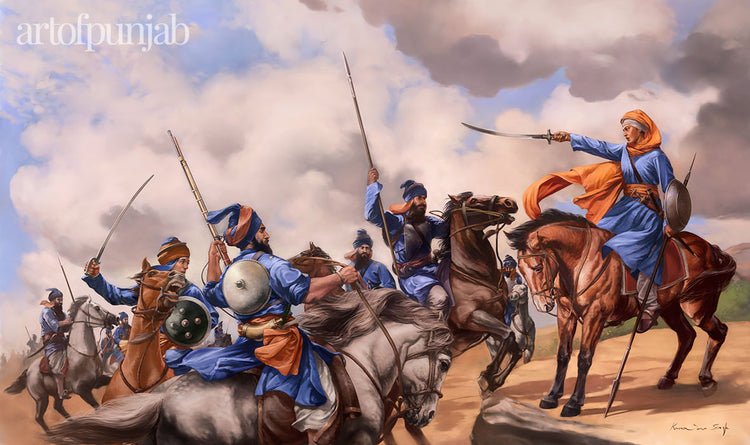
Mai Bhago and the Chaali Muktey
Mai Bhag Kaur (Mai Bhago) was the inspiration behind the bravery of the martyrs known as the Chaali Muktey (the Liberated Forty) who died in the 1705 Battle of Muktsar. When the siege went on for months, in hunger and despair, 40 Sikhs from Mai Bhago’s village of Jhabal lost heart and renounced their loyalty to the Guru in writing and deserted him. News of the betrayal quickly reached Jhabal and the ears of Mai Bhago. Boiling with rage, she went around the village and exhorted the women folk not to receive the deserters into their homes unless the made amends for the disgrace they had brought home with them. Mai Bhago rode out and intercepted the forty deserters as they neared the boundaries of the village. She challenged them to return to the service of the Guru and brought these men back to the path of devotion and sacrifice. -
1715
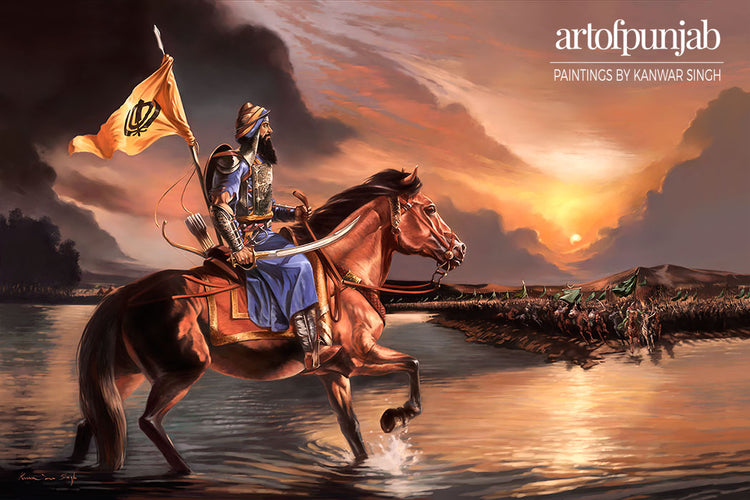
Banda Singh Bahadur - Sava Lakh Khalsa
Banda Singh Bahadur was handed the mantle of leadership from Guru Gobind Singh Ji himself. Born into the Hindu faith as Lachhman Dev, he encountered the Guru at Nander and immediately declared, “I am your Banda (slave).” Thus the Guru gave him the name Banda Singh Bahadur upon his initiation into the order of the Khalsa. After receiving the Guru’s blessing, Banda Bahadur became the first general of the Sikh panth. He amassed a force large enough to threaten the Mughal Empire and change the social, political and religious landscape of Punjab.“I will tell you, whenever men become so corrupt and wicked as to relinquish the path of equity and to abandon themselves to all kinds of excesses, then the Providence never fails to raise up a scourge like me to chastise a race so depraved; When the tyrants oppress their subjects to the limit, then God sends men like me on this earth to mete out his punishment to them.” – Banda Singh Bahadur
-
Battle of Chumkaur 1705
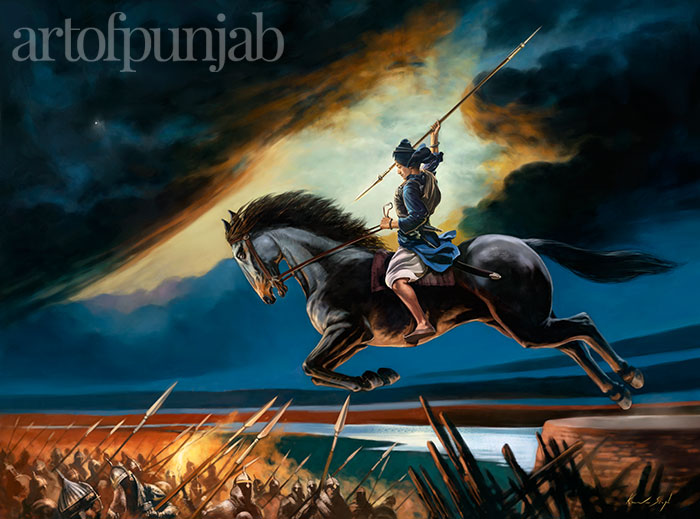
Baba Jujhar Singh
At the Battle of Chumkaur, Baba Jujhur Singh watched his brother Baba Ajit Singh attain Shaheedi. He desired to fight in the battlefield as well, though doing so meant certain death. He asked his father, Guru Gobind Singh, "Guru Sahib, permit me, dear father, to go where my brother has gone. Don't say that I am too young. I am your son. I am a Singh, a Lion, of yours. I shall prove worthy of you. I shall die fighting, with my face towards the enemy, with the Naam on my lips and the Guru in my heart." -
1499
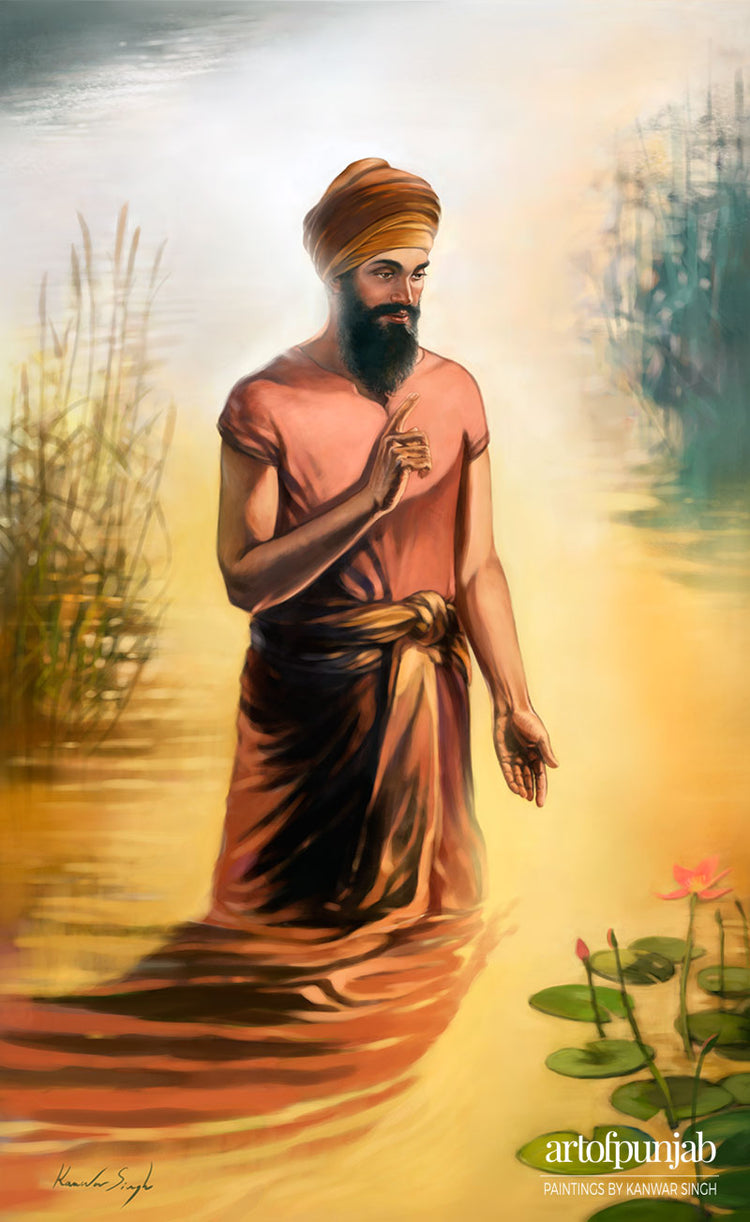
ੴ Ik Onkar
After leaving his birth village of Sabo ki Talwandi, Guru Nanak Sahib moved to Sultanpur Lodhi. It was here that one morning Guru Nanak Sahib disappeared into the dark waters of the Kali Bein rivulet. While in the water Guru Nanak had a deeply mystical experience with the Divine Creator. He was given his mission as Guru by the Divine and revealed some of the most important works of Sikh scripture including Japji Sahib, the foundational prayer of Sikhism.

